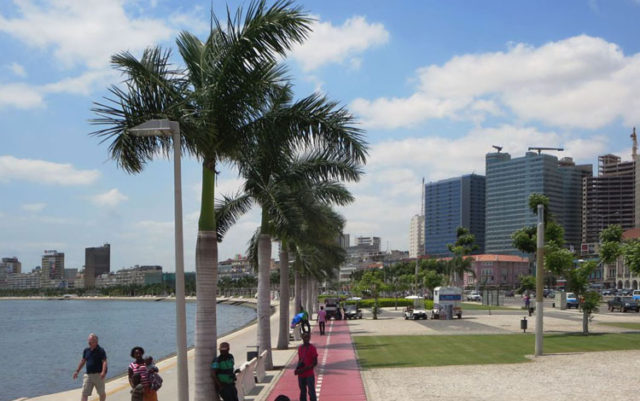

Abirami
The Republic of Angola is rich in natural resources, particularly oil and diamonds. Oil production is the mainstay of the Angolan economy, accounting for a significant portion of its GDP and exports. However, the Fitch Ratings estimation of weakening of Angolan economy in 2023 is worrying the country which demands the strengthening of its efforts to diversify economy by promoting sectors such as agriculture, manufacturing, and tourism to reduce the over-dependence on oil sector.
As per the reports of Fitch Solutions, real GDP growth in Angola is anticipated to slow from an expected 3.1% in 2022 to 1.8% in 2023. On the basis of weakening oil sector activity, real GDP growth fell from 3.9% y-o-y in Q322 to 2.6% y-o-y in Q422, according to the most recent statistics from the Instituto Nacional de Estatstica (INE). The sector makes for about 50% of the GDP. Due to weaker foreign demand and refining margins, the sector’s activity actually decreased by 5.2% year over year in Q422, down from 2.7% increase in Q322. Over the upcoming quarters, it is anticipated that the oil industry will continue to drag on growth.
The main oil industry in Angola would suffer, which will negatively impact net exports. Over 90% of the nation’s commodity exports are made up of oil, therefore production and price declines will have a big impact on export growth. It is forecasted that net exports will reduce headline growth by 2.8 percentage points (pp). The Oil & Gas team’s projections for Angola’s upstream oil production in 2023 is unfavourable since the government will find it difficult to significantly increase output due to natural declines at its current oilfields. In fact, they predict that in 2023, oil output would fall by 2.4%. A 14.2% decline in global Brent oil prices to USD85.0/bbl in 2023, as predicted by the Oil & Gas team, will amplify the effects of the declining oil supply.
At the same time, the economic growth of the nation is to pick up again in the year 2024 as Fitch Solutions see a recovery to 2.3% real GDP growth. This forecast again indicates the key role of the oil sector in the growth and stability of the country’s economy for the coming years in which the increasing productivity of public companies plays a significant part. One of the public enterprises which has the capacity to maintain the balance of public accounts is evidently Sonangol.
Sonangol, the national oil corporation (NOC), is the key to Angola’s economic success since oil continues to be the major source of income for the nation. Sonangol is crucial for guaranteeing a developing and sustainable economy. Even though the nation is one of Africa’s top producers, the output will go down in the next years due to natural reductions in legacy areas and a lack of investment in exploration. As a result, Sonangol’s board has highlighted maintaining current levels of exploration and production of crude oil in 2023 as critical initiatives for the company’s future. Sonangol is also interacting with investors and project developers to encourage E&P activities this year and in the future. These initiatives include, among other things, the adoption of regulatory changes, the opening of licencing rounds, and the provision of tax incentives.
In terms of production, Sonangol is also essential to the growth of the Angola Liquefied Natural Gas project, fostering local growth and creating new employment. The project assures reliable energy supplies are introduced into the local market in addition to monetizing the nation’s natural gas reserves, creating income and jobs. Furthermore, Sonangol’s building of the Lobito, Cabinda, and Soyo refineries is a significant investment for boosting Angola’s refining capacity and stabilising supply, guaranteeing that the nation is able to withstand the effects of the global supply chain.











